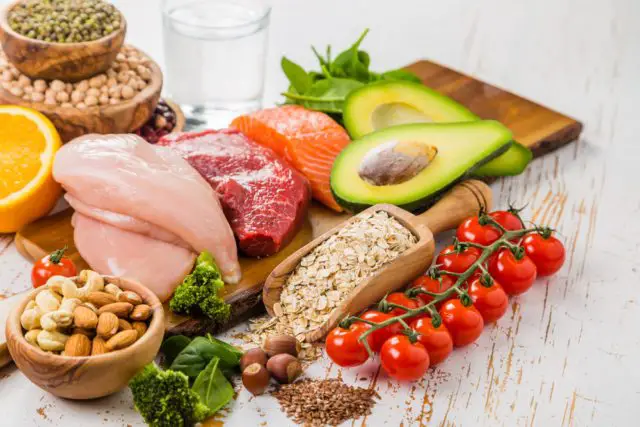To feed 10,000 million humans by 2050, in a healthy way and respecting the planet at the same time, experts advocate dividing the consumption of meat by 2 and duplicating that of fruits, vegetables, and nuts. In other words, there must be a “radical transformation” of our eating habits.
In a study by the medical journal “The Lancet” and the NGO “EAT Foundation”, scientists recommend consuming an average of 300 grams (g) of vegetables each day; 200 g of fruit, 200 g of whole cereals (rice, wheat, corn), 250 g of whole milk (or equivalent), but only 14 g of red meat, that is 10 times less than a beef steak. To replace the proteins provided by red meat, scientists recommend consuming poultry meat (29 g), fish (28 g), eggs (13 g), and nuts such as walnuts or almonds (50 g).

According to them, this regime would allow avoiding some 11 million premature deaths a year in the world; that is, 1/5 of the total deaths. In 2050, the world population will reach 10 billion people.
It would also be good for the planet because “global food production threatens the stability of our climate system and our ecosystems. Current diets are bringing the Earth beyond its limits and are a source of disease; they are a threat both to people and to the planet, at the same time”, the authors write.
This report, which for 3 years mobilized 37 experts from 16 countries, establishes a “planetary health regime”. Its objective is to guarantee a “balance between human health needs and environmental impacts”. “This does not mean that the world population should eat exactly the same foods”, the experts say.
At the global level, this regime would allow the consumption of healthy foods such as fruits, vegetables, legumes, and nuts to be doubled. On the contrary, it would be necessary to reduce -by more than 50%- the consumption of less healthy foods, such as added sugars (soft drinks, for example) and red meat, as well as to avoid processed foods.

Change in production
These global objectives conceal enormous disparities according to the level of development and culture of the country. In the United States, for example, the consumption of red meat is 280 g on average, which would require dividing its consumption by 20.
“More than 820 million people do not have access to enough food; 2,400 million people consume too much and, in total, close to half of the world population has a diet with nutrient deficiencies”, says the report.
In addition to the change in diet, experts advocate a radical change in the way of production, avoiding concentration on a few types of crops, limiting the expansion of agricultural land that reduces forests, and avoiding overfishing.
We also have to reduce food waste and losses in production processes by half
“The way we eat is one of the main causes of climate change, the loss of biodiversity and non-communicable diseases”, such as obesity, diabetes, or cardiovascular diseases, one of the authors of the study, Professor Tim Lang, of the University of London, told AFP. “In the same way that our food system changed radically in the 20th century, we believe it has to change radically in the 21st century”, he concluded.

